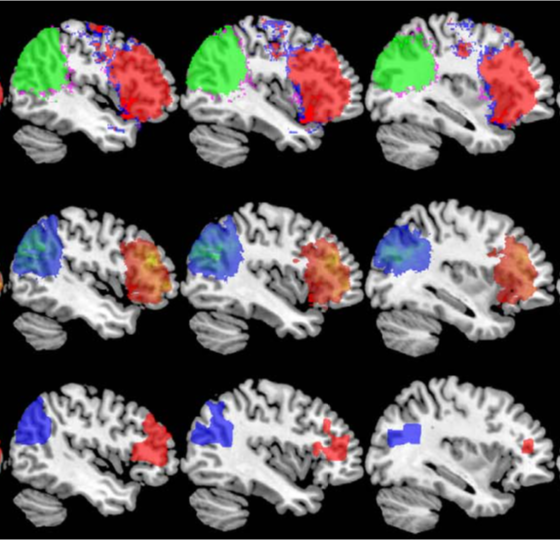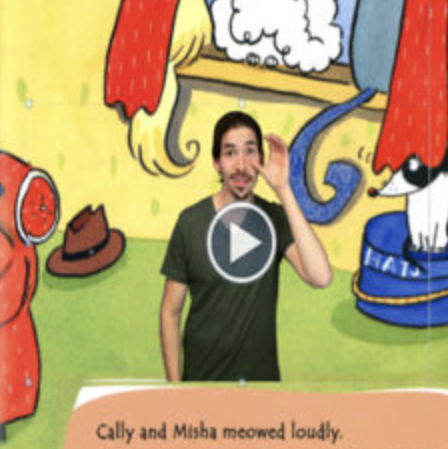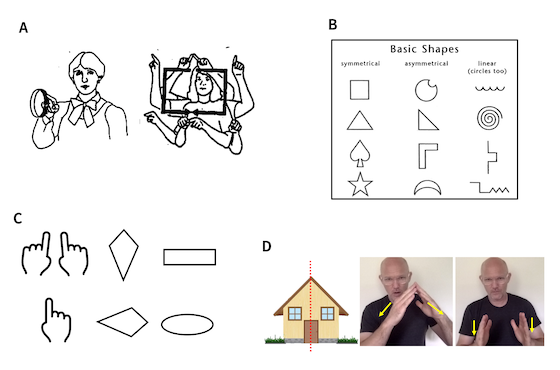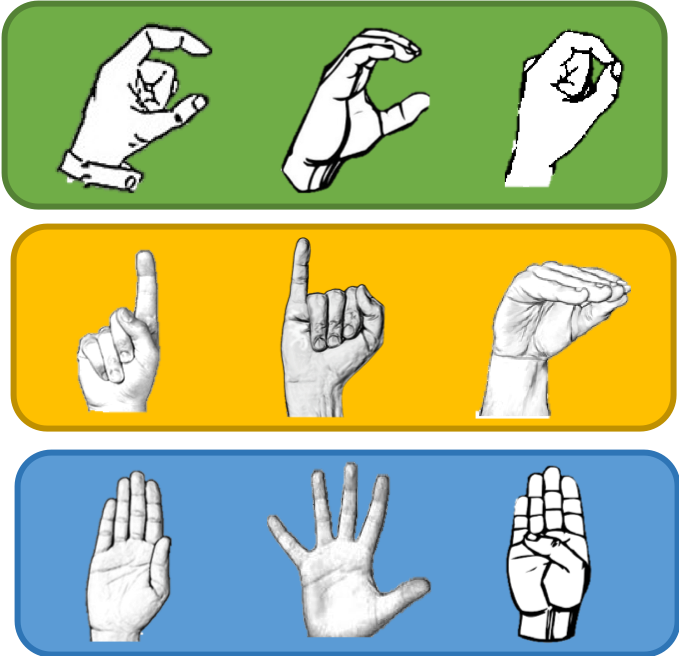
About Me
I am a fourth year PhD student at the University of Chicago researching sign language, gesture, and iconicity. I received my BA in Psychology and Linguistics from Swarthmore College in 2014. From 2014 to 2018 I worked as a research assistant at Moss Rehabilitation Research Institute studying post-stroke aphasia. In the fall of 2018 I joined the UChicago Psychology PhD program in the Goldin-Meadow lab. My past work has explored language and cognition through (1) scalar implicature processing, (2) the interaction of semantic and phonological competition in aphasia, and (3) voxel-based lesion symptom mapping. My current research projects investigate (1) the extent to which ASL signs can be flexibly modified to maximize iconicity, (2) how these modifications compare to those seen in silent gesture, and (3) the intersecting influences of iconicity, perception, and biomechanics on the depiction of shape information in ASL and other sign languages.
Contact Details
Casey Ferrara
Chicago, IL 60622
caseyferrara@gmail.com
Education
Swarthmore College
Bachelor of Arts in Psychology & Linguistics•2014
- Undergraduate Thesis (2014): "Only Some Unicorns are Ugly: How People Understand Different Types of Meaning"
- Senior project using eye-tracking to evaluate the time course of verification when listeners are provided an utterance that includes a scalar implicature.
University of Chicago
PhD, Psychology•Expected completion in 2023
- Master's Thesis (2020): "From Frozen to Flexible: Iconic Modification in ASL"
- Second year master's project exploring (1) whether ASL signers iconically modify supposedly "frozen" lexeme signs, and (2) to what extent these modifications are constrained by linguistic and non-linguistic factors.
Work
Moss Rehabilitation Research Institute (MRRI)
Research Assistant•June 2014 - August 2018
Cognitive Neurophysiology & Neuropsychology Lab
MRRI; PI: Edward Wlotko, Ph.D.
Examining left vs. right hemispheric contributions to language comprehension, predictive processing, and language in the aging brain via EEG/ERP and behavioral experiments.
Thompson-Schill Lab
UPenn; PI: Sharon Thompson-Schill, Ph.D.
Studying the ways in which the brain combines novel concepts and whether those types of conceptual combination are surpported by different neural substrates via neuroimaging and behavioral methods.
Language & Aphasia Lab
MRRI; PI: Myrna Schwartz, Ph.D.
Identifying the neural correlates of post-stroke language impairment via voxel-based lesion-symptom mapping (VLSM) alongside behavioral methods.
Language & Cognitive Dynamics Lab
Drexel; PI: Daniel Mirman, Ph.D.
Investigating language deficits and recovery after left-hemisphere stroke (aphasia) using behavioral and eye-tracking experiments, computational modeling, and lesion-symptom mapping.





